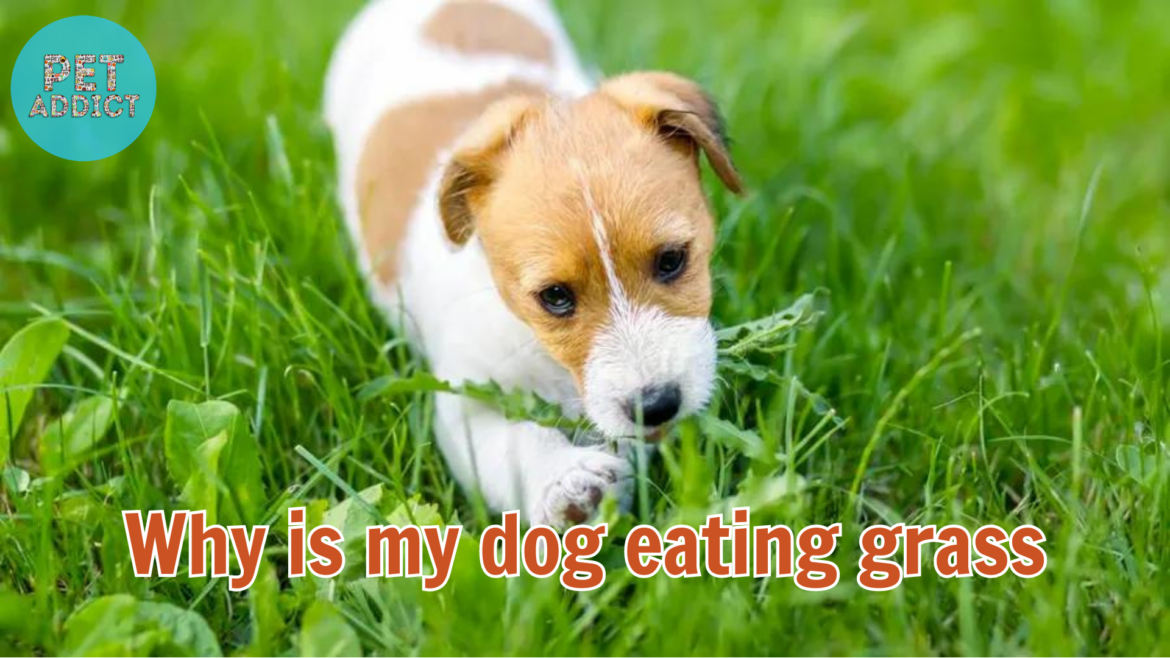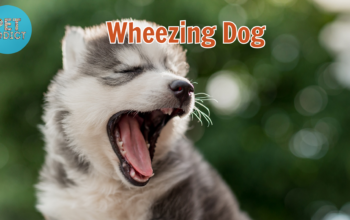As dog owners, we often witness our beloved furry companions engaging in peculiar behaviors. One of the most common and enigmatic behaviors is their tendency to eat grass. Observing our dogs munch on the green blades can leave us perplexed and wondering why they engage in this behavior. In this comprehensive guide, we will delve into the reasons behind this curious habit, explore the potential risks and benefits of grass consumption, and provide insights on how to address this behavior when necessary.
PetAddict.net – The best place where you can find everything about your pet!
The Curious Behavior: Why Is My Dog Eating Grass?
Dogs have a unique and sometimes mysterious way of communicating their needs and desires. When it comes to eating grass, there are several theories that attempt to explain this behavior.

Natural Instinct or Nutritional Deficiency?
One prevalent theory suggests that dogs may have an innate instinct to consume grass, reminiscent of their wild ancestors. We’ll explore the evolutionary reasons behind this behavior and whether it indicates a nutritional deficiency.
Boredom and Behavioral Reasons
Boredom and lack of mental stimulation can lead dogs to seek out unusual activities, such as eating grass. We’ll discuss how to keep our canine friends mentally engaged to reduce such behaviors.
Seeking Relief from Upset Stomach
You may have noticed your dog eating grass when they feel unwell. We’ll examine the potential link between grass consumption and alleviating stomach discomfort.
Mimicking Owner’s Behavior
Dogs are highly social animals and often imitate their human family members. We’ll explore how your actions may influence your dog’s grass-eating tendencies.
Is Grass Consumption Safe for Dogs?
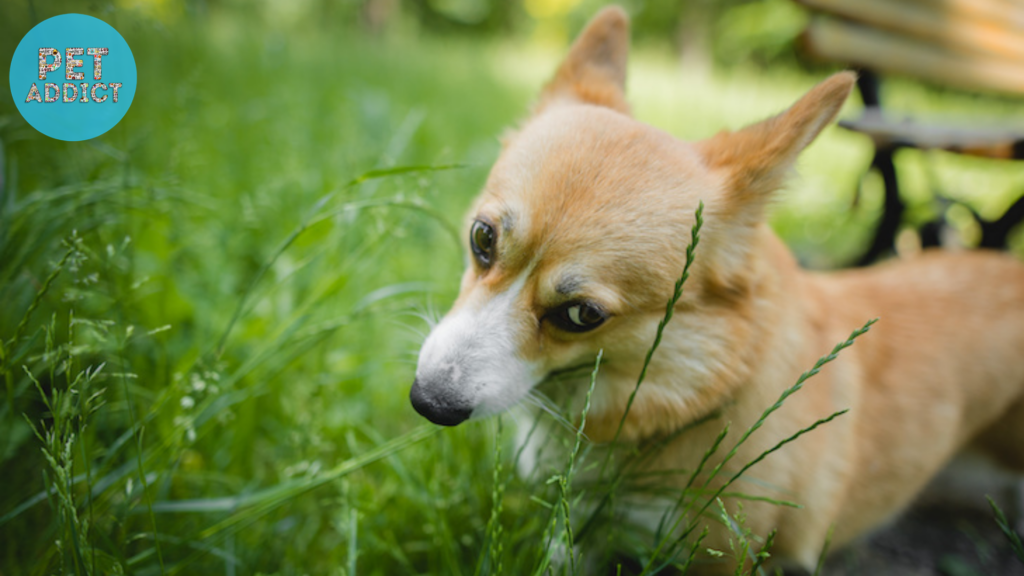
While grass eating is a common behavior in dogs, it raises concerns about their well-being and safety. We’ll take a closer look at the potential dangers of grass consumption and whether it poses any risks to our furry companions.
Potential Dangers of Grass Consumption
Not all grass is created equal, and some varieties may be harmful to dogs. We’ll identify types of grass to watch out for and potential hazards associated with grass consumption.
Safe Grass Alternatives for Dogs
For dog owners concerned about the risks of grass consumption, we’ll explore safe alternatives to provide a similar sensory experience for our canine friends.
Addressing the Issue: How to Prevent Excessive Grass Eating
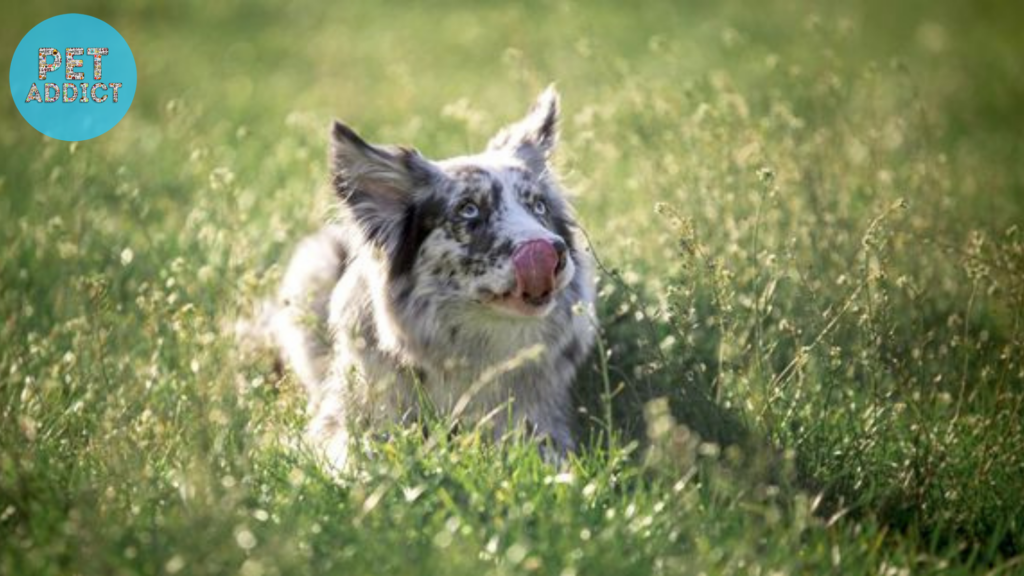
While occasional grass eating may not be a cause for concern, excessive consumption can be problematic. We’ll discuss practical steps to prevent and manage this behavior.
Ensuring a Balanced Diet
A well-balanced diet is essential for your dog’s overall health and may play a role in reducing grass-eating behavior. We’ll provide guidance on choosing the right food for your pet’s needs.
Providing Mental and Physical Stimulation
Boredom and lack of stimulation can lead to undesirable behaviors. We’ll explore ways to keep your dog mentally and physically engaged to curb excessive grass consumption.
Creating a Safe and Enriching Environment
The environment plays a significant role in shaping your dog’s behavior. We’ll offer tips on creating a safe and enriching space for your furry friend to thrive.
Consulting a Veterinarian
If your dog’s grass-eating behavior becomes a concern, it’s essential to seek professional advice. We’ll discuss when a visit to the veterinarian is necessary and what to expect during the examination.
When Grass Eating Indicates an Underlying Health Problem
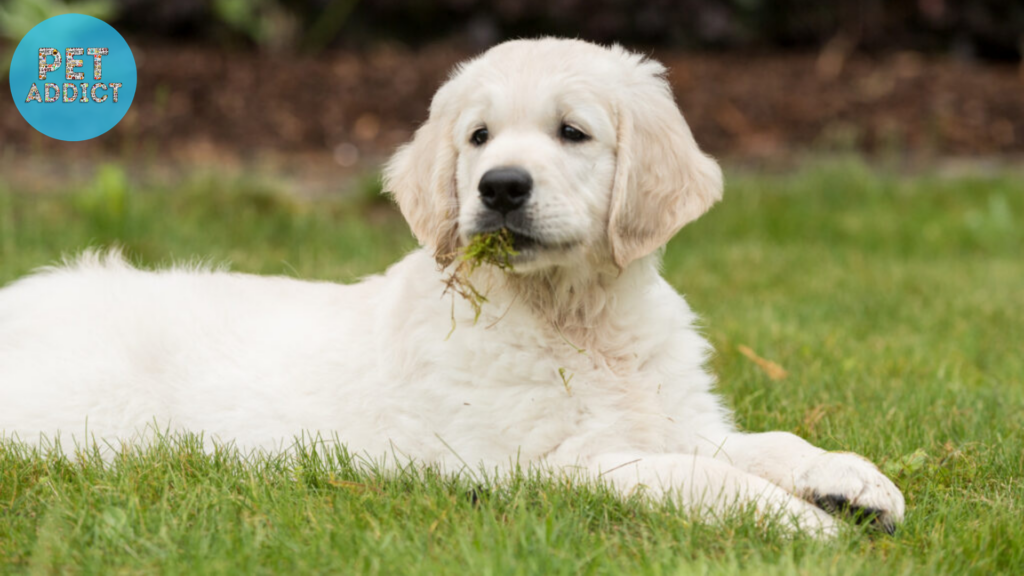
While grass eating is generally considered normal, there are instances where it may signal an underlying health issue. We’ll explore potential medical reasons for this behavior.
Gastrointestinal Issues
Grass consumption can be a sign of gastrointestinal distress. We’ll examine common digestive problems that may be linked to grass eating.
Intestinal Parasites
Certain parasites can lead to increased grass consumption in dogs. We’ll discuss common intestinal parasites and their impact on your dog’s health.
Pica: The Compulsive Eating Disorder
In some cases, grass eating may be a manifestation of a compulsive eating disorder known as pica. We’ll delve into this condition and its management.
Other Medical Conditions
We’ll explore additional medical conditions that may cause dogs to eat grass excessively and how to identify them.
A Behavioral Perspective: Understanding Your Dog’s Needs
To effectively address your dog’s grass-eating behavior, we must consider their emotional well-being. We’ll explore how stress and anxiety can influence their actions.
Signs of Stress and Anxiety in Dogs
Recognizing signs of stress and anxiety is crucial for understanding your dog’s emotional state. We’ll help you identify these signs and provide guidance on managing stress.
Addressing Behavioral Issues Through Training
Training and behavior modification techniques can be effective in curbing undesirable behaviors. We’ll discuss positive reinforcement and other training methods.
Conclusion
Grass eating in dogs may remain a fascinating behavior, but understanding the reasons behind it is essential for responsible pet ownership. While occasional grass consumption is generally harmless, excessive or unusual grass eating may warrant further investigation. By providing a balanced diet, ensuring mental and physical stimulation, and monitoring your dog’s habits, you can help promote their overall well-being and address any underlying issues that may be contributing to this behavior.

